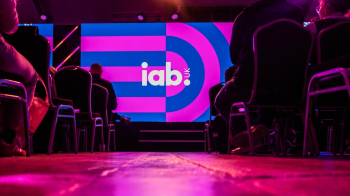Who has the power?
Stuart Aitken
The importance of understanding people, the power of empathy and the need to create relevant experiences were crucial themes to emerge from this year’s DigitasLBi Newfront, says Stuart Aitken, the agency’s Head of Brand & Content.
The theme for this year’s DigitasLBi UK NewFront event was Make the Internet Great Again. At the heart of this lay an acknowledgement that while the internet has transformed our lives for the better in countless ways, not everything about its development - especially in recent years - has been perfect. This was an opportunity to take stock of where we are and to ask whether there’s more that the gathered audience of agencies, brands, content creators and technology specialists can do to ensure that we’re creating an internet and connected services, products and experiences that genuinely work for all and make people’s lives better.
We covered a huge amount of ground on the day from concerns about an impending techlash to an analysis of the value of the filter bubble and from discussions on the future of work to Grace Dent’s assertion that trolling is the result of people not having enough fresh air or exercise. There were common themes that ran through the day’s discussions though. Key amongst these was an acknowledgement of the importance of understanding people, the power of empathy and the need to create relevant experiences.
A central voice on these themes was Mei Lin Fung, Co-Founder with Vint Cerf of the People-Centered Internet (PCI). As one of the co-inventors of the concept of CRM, Mei Lin is uniquely qualified to talk about these issues. Having set up the first CRM system during her time at Oracle, Mei Lin began to be dismayed by the application of a process that she believed could deliver true customer value being misapplied to simply deliver self-serving results that did nothing to enhance the lives of the customers that she had hoped it would serve.
With the development of the internet she saw the same process playing out. Rather than adding value to human life, she began to see powerful data and technology systems being used merely as a way to enhance the bottom line of powerful corporations. It was this pattern that inspired her to approach a kindred spirit worried about the same issues, the father of the internet Vint Cerf. And so the People Centered Internet was born with the mission statement of putting humanity – people and their needs and aspirations – at the centre of the internet.
Mei Lin's empassioned presentation on the day – the first time she had spoken publicly about PCI outside of the US – featured a call to arms for brands and advertisers to put purpose, humanity and value at the heart of everything that they do in a digital environment. Only then can organisations create something of true value to both their customers and humanity as a whole. She acknowledged that this is no easy task. And there are no quick wins. To walk this path, organisations must be prepared to put in long term investment.
This idea of value was echoed most strongly on the day by our panel session which gathered a range of different voices to pitch their ideas on how to make the internet great again. Key amongst these, Richard Wilson, co-founder of Stop Funding Hate argued that by being responsible, advertisers, brands could truly make the internet great again.
Our keynote speaker, author and presenter Jamie Bartlett, also argued that brands have a moral responsibility to ensure that what they are doing, how they communicate and where they advertise has the potential to influence the development of the digital ecosystem - and by doing so can deliver true value for brands and their customers alike. Failing to do so will have serious consequences for all in terms of consumer trust.
In an interview to be published this week, Winnie Palmer EMEA Director, Digital Demand Centre at HPE, outlined her belief in responsible leadership which is vital in driving brands and advertisers in the right direction to ensure their continued value to customers and potential customers.
So can brands make the internet great again? As the increasingly digital world in which we live becomes increasingly ad funded, brands have the power to not only control how they are viewed by customers but in doing so can help to shape an environment that works for all. As our CEO Michael Islip noted in his opening address, with this increased power comes increased responsibility. Agencies and advertisers now have a greater opportunity to understand their customers, but hard data is not enough. Unless overlaid with humanity and empathy we can never truly create relevant experiences and better services for customers.
During her talk, Mei Lin Fung quoted from a 1939 poem called Upon This Age That Never Speaks Its Mind by Edna St. Vincent Millay:
Upon this gifted age, in its dark hour,
Rains from the sky a meteoric shower
Of facts . . . they lie unquestioned, uncombined.
Wisdom enough to leech us of our ill
Is daily spun; but there exists no loom
To weave it into fabric.
Mei Lin argued that the internet is our loom. Brands would do well to think about how they can unlock this power and use the internet as their loom to weave truly meaningful experiences for their customers.
Related content
Mood, mindset and meaning: how audio and culture shaped day two of IAB Upfronts
Learn moreFrom WhatsApp to fandom: How connection and creativity ruled IAB Upfronts day one
Learn moreNectar360, Bauer, Tripadvisor, Global, Meta & Spotify at IAB UK’s first Media Upfronts
Learn moreDebate & diversity are both essential to make the ad industry better
Learn more
Fast forward to 2030 with Futurescape
An in-depth exploration of the attitudes, innovations and media shifts that will shape the years ahead and redefine how we advertise by the turn of the decade



